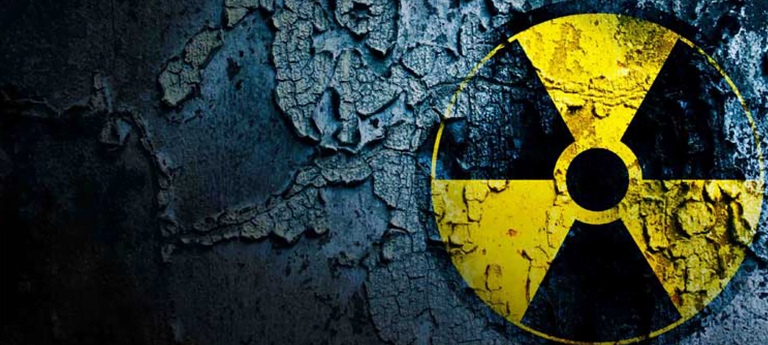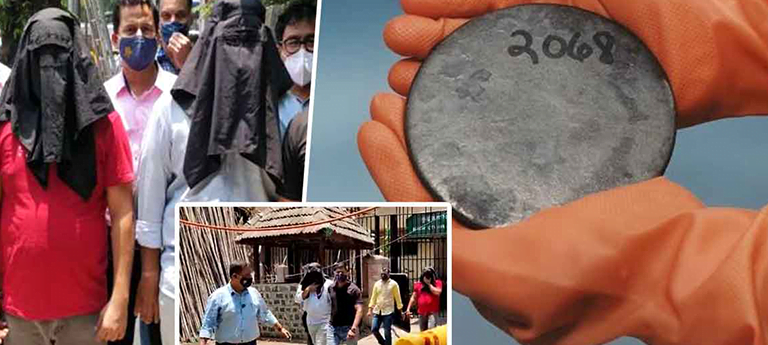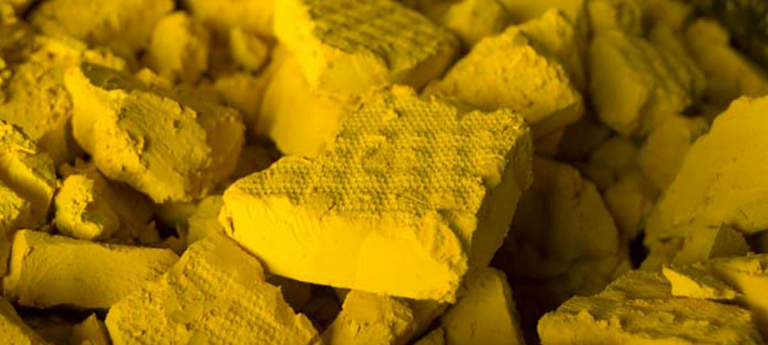On June 3, 2021, Indian security forces apprehended seven people and seized 6.4 kilogrammes of uranium from their possession, marking the second time in less than a month that authorities have seized a big quantity of radioactive material from unlicensed individuals. The last such incident occurred on May 5, 2021, in the Indian state of Maharashtra, when more than seven kilogrammes of Uranium were seized.
The most recent episode of nuclear theft occurred in Jharkhand’s eastern state of Bokaro, which has uranium reserves. Increased nuclear trafficking occurrences in India have sent alarm bells around the world. In response to these troubling developments in India, Pakistan and the rest of the world have expressed legitimate worries about the safety and security of India’s nuclear material. Pakistan’s foreign ministry has asked that the reports of illicit uranium trafficking in India be thoroughly investigated.
“The United Nations Security Council 1540 and the IAEA Convention on the Physical Protection of Nuclear Material (CPPNM) make it binding on states to ensure stringent measures to prevent nuclear material from falling into wrong hands,” reads the Pakistan Foreign Office Communiqué. The press release also added, “It is equally important to ascertain the intent and ultimate use of the attempted Uranium sale given its relevance to international peace and security as well as the sanctity of global non-proliferation regime.”
Related Article: India’s Nuclear Black Market raises concerns
Nuclear installations and facilities have always been a critical part of a country’s nuclear safety and security apparatus. The frequent indictments of smugglers with radioactive material point to flaws in India’s nuclear safety record. India’s claims of strong nuclear safety and security standards may not be enough to persuade the international community, given the annual reports of Uranium and other nuclear materials being stolen. India’s hopes to become a de-jure member of the Nuclear Suppliers Group (NSG), a 48-nation organisation that regulates global nuclear trade, have been endangered by an increase in nuclear-related incident. With these incidents, India’s position has already been weakened, as international pressure grows over the country’s low safety standards. In its most recent study, the Nuclear Threat Initiative (NTI) nuclear security index, a major US non-proliferation watchdog, ranked India last for its poor nuclear material safety and security. Why has India been continually ranked poorly by international watchdogs? The following are the reasons behind India’s poor performance.

In November 1994, Meghalaya Police confiscated 2.5 kilogramme of uranium from a gang of four smugglers in the Domiasiat region, marking the first reported occurrence of nuclear smuggling in India. In June 1998, police in the Indian state of West Bengal apprehended an opposition lawmaker who they claimed was carrying more than 100 kilos of uranium. The Indian Central Bureau of Investigation (CBI) discovered a massive uranium theft ring in Tamil Nadu in July 1998, seizing over eight kg of the nuclear material. Two men were caught in August 2001 in the Indian state of West Bengal with more than 200 grammes of semi-processed uranium.
In a town near the Bangladesh border, Indian security authorities caught members of a terror cell carrying 225 grammes of milled uranium in 2003. In December 2006, a container holding radioactive material was stolen from a government-run research facility in eastern India.

Another criminal gang was busted in 2008 attempting to steal low-grade uranium from a state-owned mine in India. According to Indian government sources, guerilla rebels in northeast India illegally obtained uranium ore from a government-run milling complex in 2013 and used it to create a rudimentary bomb before being apprehended by police. As if that wasn’t enough, two people in Thane were apprehended with roughly 9 kg of radioactive uranium in December 2016. The Kolkata police nabbed another uranium smuggling ring in early 2018, this time with one kilogramme of radioactive material.
In an article published in Modern Diplomacy on May 9 of this year, Amjed Jaaved discusses the misuse of radioactive materials in India. He claims that similar incidents are rarely reported in India’s media. However, to comply with disclosure rules, the Indian government occasionally notifies such instances to the International Atomic Energy Agency (IAEA). India reported 25 examples of “missing” or “stolen” radio-active material from its labs to the IAEA, according to foreign media reports (February 25, 2004). 52 percent of the incidents were linked to “stealing,” while 48 percent were linked to the “missing enigma”. In a total of 25 incidents, India claimed to have retrieved missing material in twelve of them. It did disclose, however, that there were 13 unresolved instances. India reports such instances to the International Atomic Energy Agency (IAEA) in order to present itself as a “responsible state.” It’s difficult to conceive that radioactive material could be stolen from nuclear reactors without the knowledge of the operators.

The shooting at the Kalpakkam Atomic Power Station in Madras in 2014 raised a serious question about institutional sabotage. Experts questioned whether India, with its history of civil strife, is fully prepared to protect the components of a lethal nuclear weapon from being taken by insiders motivated by personal grievances or malice. There is enough documentary proof of nuclear security failings over the previous few decades to compel politicians and the strategic security community to pay attention. From criminal gangs obtaining several kilogrammes of semi-processed uranium from a state-owned mine in Meghalaya to federal politicians orchestrating an operation to extract 100 kilogrammes of uranium from Jharkhand to mining employees selling milled uranium to militant groups, to leftist guerrillas strapping uranium ore obtained from government-run milling complexes – strongly indicate that India has a nuclear black market with deep roots in the country’s nuclear safety and security mechanisms.
The international community has a shared obligation to implement a zero-tolerance standard for the loss of any nuclear materials that could be used to make a bomb. To sum up, the international community must consider India’s track record on nuclear and hazardous material safety, particularly now that India is under a hardline regime that could threaten international peace.






